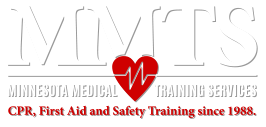Most people have a general idea of how CPR is done and what it looks like. You’ve most likely seen it performed in a movie or TV show (though not always in an accurate way). But what exactly does CPR accomplish? How does it work? Why do you need training for it?
Here are the answers to some of the most common CPR questions we receive:
What Does CPR Stand For?
Everyone has heard of CPR, but many don’t actually know what the letters represent. CPR stands for cardiopulmonary resuscitation. That means the correcting of acute problems relating to the heart and lungs. In laymen’s terms, it means providing emergency treatment to a person suffering from a sudden problem with their heart or breathing.
What is the Purpose of CPR?
CPR is an emergency procedure that’s applied when a person is experiencing trouble breathing and/or their heartbeat has stopped or become erratic. The goal is to make sure air can flow into the lungs and to keep the heart beating at a regular interval.
By keeping oxygen in the lungs and blood flowing through the body, a person’s higher brain functions can be sustained until medical help arrives on the scene.
Can You Restart Someone’s Heart with CPR?
If someone’s heartbeat has stopped or becomes inconsistent, CPR will most likely not restore it to proper function. By providing chest compressions, you are able to keep the heart beating manually, insuring blood is flowing through their veins.
While it’s possible that someone’s heart could resume beating regularly through CPR, it generally requires the assistance of a defibrillator to “jump-start” it.
Do I Need Training to Perform CPR?
To perform CPR properly and to be prepared for when an emergency situation arises, you should become certified in CPR training. CPR is an invaluable skill to have that could very well save the life of a loved one someday. Performing it incorrectly, however, could prove ineffective, or worse, result in further injury to the person.
Get certified now. Check out our schedule for upcoming classes or contact us directly.
Do you have any additional CPR questions you’d like us to answer? Write them in the comments below.

